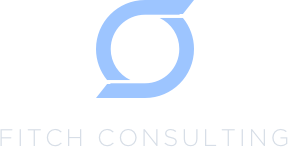Fitch Consulting Offers Free Holistic Organizational Diagnostic Report to Participating Beta Testers
Atlantic Highlands, NJ: Fitch Consulting LLC is changing the way businesses approach organizational design with their new holistic organizational diagnostic tool — the Organizational Flow (OnFlow™) Diagnostic Survey.
Rapidly changing business landscapes demand new business models. Traditional management practices are less applicable in a volatile, uncertain, complex, and ambiguous (VUCA) world that blends in-person, virtual, and hybrid models and relies on constant adaptability, resilience, and creativity to succeed. But determining what works best for an organization is challenging, and implementing new approaches can cause managers uncertainty and undue anxiety. How are people managing their work? Are they engaged? Are they motivated? Are they being productive? These are a few things leaders might be thinking, especially if their company has just started adopting new approaches to this new world of work.
Fitch Consulting understands the importance of designing high-performing organizations that can thrive in a VUCA world. They believe a people-centered approach is essential for organizations to achieve sustained success — and engaging the whole organization, at all levels, is necessary to diagnose what practices are and aren’t working within a business. With their holistic design framework, OnFlow, Fitch is confident they can help change organizations for good while making a lasting difference in the world of work.
OnFlow is the ideal state within organizations where people — individually and collectively — thrive and excel. When they do, the organization becomes generative, with everyone engaged in finding the best ways to deliver the future. OnFlow is the key to unlocking heightened creativity, increased performance, and accelerated problem-solving within any organization — and the solution businesses need to diagnose their current state and envision their desired future state.
The OnFlow Diagnostic Survey is a holistic organizational diagnostic tool designed to help businesses identify their strengths, weaknesses, and organizational priorities for improvement. The survey takes approximately 10 minutes to complete and includes a report that helps leaders understand how people in the organization perceive the whole organizational experience. It also provides clear insights into how an organization is performing, while identifying collective priorities for the future. Organization-wide participation yields more meaningful results — enabling leaders to explore root causes of high importance across all teams. This intentional approach is critical to becoming a fully generative organization.
Fitch Consulting is beta testing the survey and is inviting organizations to participate for free. Over the next two months, organizations that sign up to participate in beta testing will receive the OnFlow Diagnostic Survey for all their employees and the subsequent detailed diagnostic report for free (limited quantities apply). This opportunity will end on July 19, so sign up today!
If you want to take your business to the next level, contact Fitch Consulting to express your interest in participating in the OnFlow Diagnostic Survey beta test.
For more information about Fitch Consulting and the OnFlow framework, visit fitch-consulting.com.
At Fitch Consulting, our mission is to inspire and empower organizations to “change for good” and deliver an exceptional experience to every stakeholder, beginning with their own people. We help ambitious organizations create the conditions that stimulate and empower positive change. Fitch Consulting provides the pathway to confidence, the tools to enhance capability, and a thought partner to help you unleash the best you have to offer. Wherever you are on your journey, Fitch Consulting can help you believe more and achieve more. Join the OnFlow journey and become a force for good.

